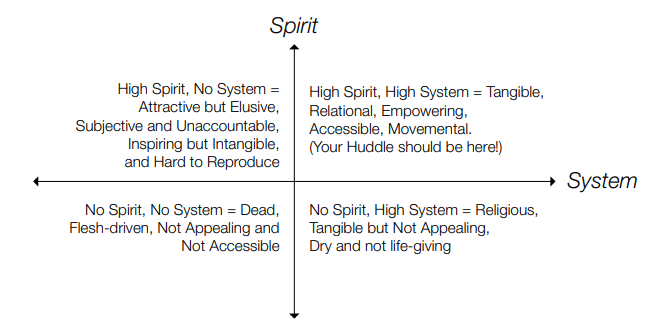Episode 146: Spiritual Strategery: Finding the balance between systems and Spirit
On today’s episode we’re talking to Bill Kennon diving into how good systems can build culture, save you time and money, and unlock potential in your ministry. We’ll also explore how to prevent a system from making your ministry feel stale and key indicators you can use to evaluate the systems in your organization.
FULL SHOW NOTES:
- A system is a tool to help you be more effective to leverage the resources you already have.
- Sometimes people can feel that systems are a negative thing. But often it’s not the system that is the problem, but how we view or engage it.
- When a system is driven to an extreme, it can become a challenge from your vision. It must remain in service to the goal. You must never be more committed to the system than to the goal which it serves.
- Andy Stanley: “Your system is perfectly designed to give you the results you’re currently seeing.”
- Everyone has a system. You may be unaware of it or be doing it on accident. If you don’t choose the system, whatever your default is becomes your system.
- Accidental, unintentional systems are NEVER good systems.
- Systems are not doctrine! They can and should change and be reevaluated.
- Sometimes it can feel like we are following the Spirit’s leading when, in reality, we are simply responding to whatever crises is arising from our LACK of having a good system! Rather than preventing it, systems create margin and that margin helps you be more agile, creative, and in tune with the Holy Spirit.
- When you don’t have a system and you’re not getting the results you want, it’s tempting to throw everything out and start from scratch. Instead, you can go back and evaluate specific steps or pieces of a system and tweak them more intentionally and with more insight.
- When system and Spirit intersect (taken from Crossroads Church).

- When rolling out a system, people need to be very clear on how it connects to and advances the mission and vision.
- When evaluating a system, make sure you’re clear on the desired outcome and then measure the success against that.
- EXAMPLE: a system for vetting new kids ministry volunteers might be long, somewhat slow, and fairly intense. But that is actually on purpose! The system is working as intended in that case.
- Systems can also be overly cumbersome.
- Paterson Center, Thinking Wavelengths – https://patersoncenter.com/
- Sometimes people who love systems can get so enamored with the system and the check-boxes that they lose sight of the overarching vision.
- When should you go through the extra work of creating a system:
- If it’s being done multiple times
- If it’s important to have consistency
- If more than one person is involved in the process
- A system is similar to running a play in sports. It makes it so everyone knows what everyone else is doing and where they will be.
- Systems can often be pro-people. They care for people.
- It’s a caring thing to help someone feel more confident in what they are doing (slotting into a system).
- For those who are being ministered to, it helps them feel more cared for if things are organized more.
- Systems are a powerful creator of culture. Even for smaller churches or organizations, it can be beneficial to create a system sooner rather than later because it’s always easier to create a culture from scratch than it is to fix a broken or misaligned culture later on.
- The next best step: ask, “What is my biggest pain point right now?” Then explore the current outcome as compared to the one you wish you had. Then see if you can work your way backward and build a system to achieve that outcome.
- You can even find good people and empower others to create it.
- Then lead by example and follow the system! People don’t want to serve under a leader who is inconsistent and doesn’t practice what they preach.
- Connect with Bill: bill@kennonleadership.com
- Connect with Brandon: brandoncollins.org – brandon.collins@ministryarchitects.com
- Email Trabelus: trabelus.whitfield@ministryarchitects.com
